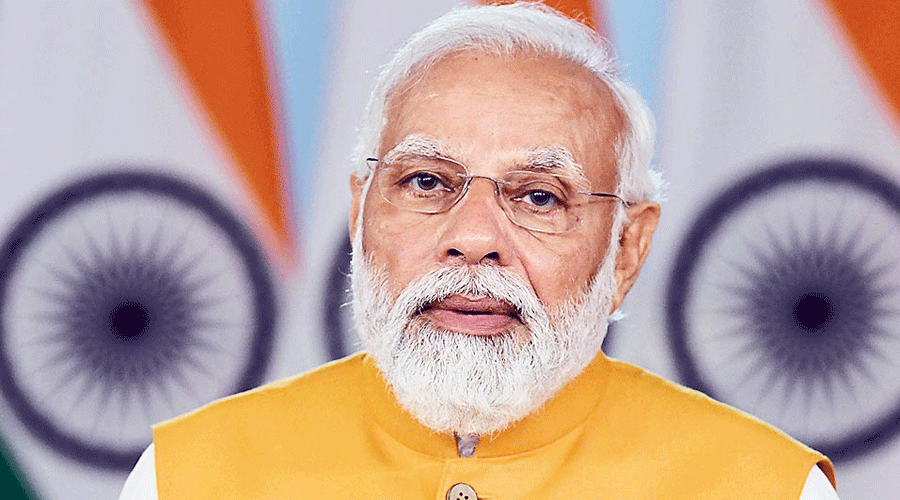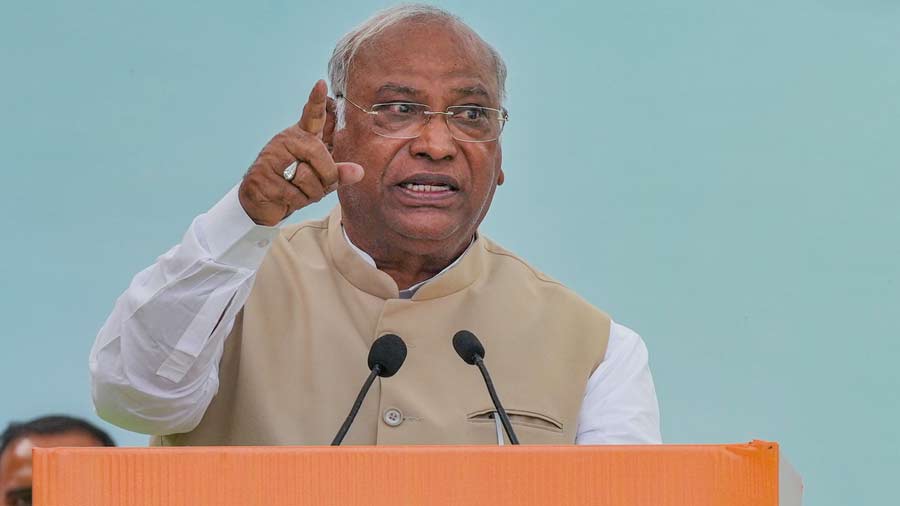On the eve of the sixth anniversary of Prime Minister Narendra Modi’s most important decision of his tenure, the Congress underscored the demonetisation’s failure to achieve its much-touted objectives.
Recalling the decision announced on November 8 in 2016, Congress president Mallikarjun Kharge tweeted: “Demonetisation was promised to free the country of black money. But it destroyed businesses and ruined jobs. Six years after the ‘masterstroke’, the cash available in public is 72% higher than that in 2016. The Prime Minister is yet to acknowledge this epic failure that led to the fall of the economy.”
Kharge attached a report to his tweet, which suggested that the cash in circulation today is Rs 30.88 lakh crore while it was merely Rs 17.97 lakh crore in November 2016. One of the stated objectives of the demonetisation was to promote digital transactions as the government felt too much cash was in circulation. The sharp jump in cash has clearly exploded that objective of the government — sending it the way of its other goals like fighting corruption, weeding out fake notes and curbing terror funding.
In a national address at 8pm on November 8, 2016, that began with the then signature “Mitron”, the Prime Minister had stunned the country by declaring that currency notes of Rs 500 and Rs 1,000 were being scrapped. The decision triggered panic, creating unspeakable problems linked to cash and destroying countless small and medium businesses. The deaths of over 150 people were tied to the struggle to cope with the scarcity of cash.
Rahul Gandhi, who had been critical of the decision as the then Congress president, also tweeted on Monday: “Black money didn’t come, only poverty came. Economy became weaker, not cashless. Small businesses and crores of jobs were finished off, not terrorism. The emperor demolished India’s economy by giving the people illusions of a better outcome in 50 days.”
When his decision caused chaos and unprecedented miseries in the country, Modi told the people to give him 50 days and punish him in whatever way they wanted if the demonetisation proved a wrong decision.
Now Modi neither claims success for the decision (he has rarely kicked off his speeches with “Mitron” since then) nor asks people to judge him for the reckless step, roundly criticised by several economists at home and abroad. Predicting a fall in GDP growth, former Prime Minister Manmohan Singh, who is also an economist, had said about the demonetisation: “It is an organised loot and legalised plunder.”
While a booming economy nosedived after the notebandi decision, its benefits were neither visible to any economist, nor the Prime Minister chose to sustain his defence of the decision. Modi has almost forgotten it but the Congress has dutifully observed all its anniversaries since 2016.
Addressing a public rally in Telangana on Monday, Rahul Gandhi said: “Notebandi broke the backbone of the Indian economy, followed by a flawed GST, wreaking havoc on small and medium enterprises.”
Rahul linked the demonetisation and the flawed GST to rising unemployment in the country, saying: “The Modi government’s policy is to strike fear into the people. Notebandi and GST frightened people. Then they harness this fear to create hate. These policies, like demonetisation, GST and farm laws, aren’t designed to benefit the poor, small businessmen or farmers. They are to help a few corporate houses. The Bharat Jodo Yatra is a response to such policies.”












